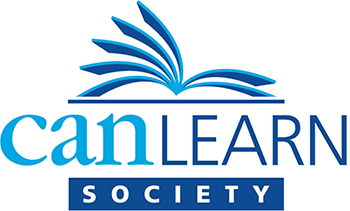ADHD is a neurodevelopmental disorder. Historically, research about the disorder has focused on children and teens struggling with ADHD symptoms and the impairments these can cause in school. Unfortunately, many don’t realize that neurodevelopment is a lifelong process. Since most of our lives are spent in adulthood, the impacts of ADHD on school must be only part of our focus in treating the disorder. Given that most people with ADHD have symptoms that continue past adolescence, we have been working with the CanLearn Society over the past 18 months to evaluate their programming for adults with ADHD. To get a sense of their experiences and perceptions of the programs and determine whether they are equally effective across young, middle, and late adulthood.
Adults living with ADHD often struggle with executive skills like planning and organization, which may impact everyday functioning and cause problems with motivation, memory, or reliability. Adults with ADHD also commonly struggle with emotional regulation; for example, they can be highly sensitive to rejection or have difficulty managing their anger. Helping people improve their everyday executive skills and emotional regulation is the objective of CanLearn’s services for adults.
CanLearn’s current programs include a support group called “Let’s Talk ADHD” and a one-on-one ADHD coaching service. “Let’s Talk ADHD” is offered every few months for 90 minutes weekly over seven weeks. It employs a group cognitive behaviour therapy framework and includes mindfulness, psychoeducation, skills development, and social support components. The coaching program usually consists of eight one-hour sessions over 16 weeks. Coaching sessions introduce methods of mindfulness and self-regulation and educate clients on executive function and neuroscience basics. Both programs aim to help clients develop skills and strategies for managing challenges associated with ADHD in adulthood and incorporate modes of effective treatment that have been proven effective in large, well-designed research studies.
In our collaboration with the CanLearn Society, we have measured the impact and effectiveness of the “Let’s Talk ADHD” and coaching services. Clients who decide to participate complete confidential surveys before beginning their program, immediately post-completion, and three months after completing their program. These questionnaires ask about ADHD symptoms, executive skills, functioning in everyday life, and quality of life. We also ask participants to complete measures of program satisfaction. We have gathered data since October 2021, and 31 CanLearn clients have opted to participate in this program evaluation. We are pleased to see that the responses we have collected to date generally show that clients perceive an improvement in their ADHD symptoms after completing the CanLearn programs. They also report improved executive skills, everyday functioning, and quality of life. We will continue to gather results until March 2023 and explore more detailed questions, such as whether men and women benefit from these programs to the same extent and whether younger and older adults report similar improvements after participating.
The availability of effective treatments for adults with ADHD is essential because research studies show that appropriately managing the symptoms of ADHD – whether through medication, behavioural supports, or both – can significantly offset the difficulties incurred by ADHD and greatly improve quality of life. We are excited to collaborate with the CanLearn Society to ensure their programs meet the needs of all individuals across their diverse clientele.
Susan Flynn Lowry (BA Honours, Psychology, 2022) is supervised by Dr. Brandy Callahan and is part of the University of Calgary’s Neurocognitive Disorders Lab in the Department of Psychology. Dr. Callahan is an Assistant Professor at the University of Calgary, and her research aims to understand how individuals with ADHD experience aging. The work described here was funded by a Partnership Engage Grant from the Social Sciences and Humanities Research Council.

